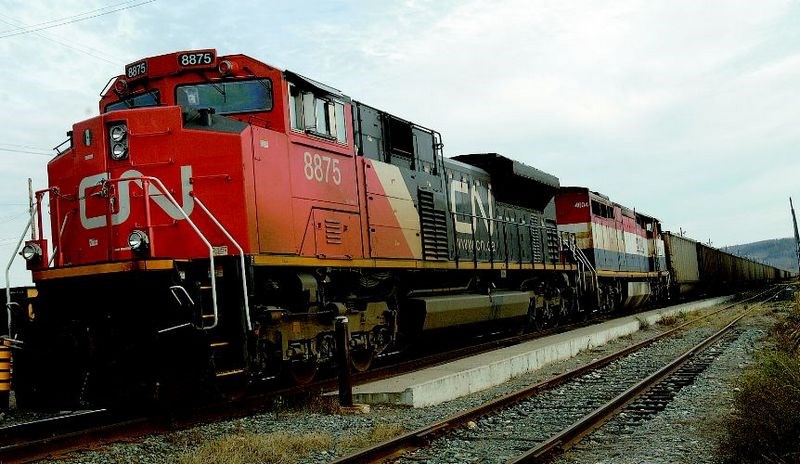The Forest Products Association of Canada is calling on the federal government to move immediately to implement regulatory changes to improve railroad services, rather than giving CN and CP a chance to improve services in the next three years.
The two-part strategy - with legislation a fall-back position if commercial measures prove unsuccessful - is the recommendation of the Rail Freight Service Review Panel, delivered last week in an interim report.
The panel is seeking comment on its recommendations until Nov 8. The final report must be delivered to the federal government before Christmas.
"If the railways were serious about improving service they would have done so by now," said Forest Products Association president Avrim Lazar.
"A delay is simply unacceptable and a deep blow to resource communities in rural Canada that depend on shipping," he added.
Lazar identified the problem as inadequate service, with companies generally having little or no ability to take their business elsewhere as in many cases the railways have monopolies. For example, CN is the only railway that operates in northern B.C.
Lazar cited, as examples, service concerns over rail cars showing up when they are not needed, not as many car as needed being delivered and fuel surcharges being charged that are higher than a fuel price increase.
While a survey of shippers outlined in the panel's report showed a similar set of concerns as those outlined by Lazar, forest companies rarely cite concerns publicly about rail service in northern B.C.
Lazar said forest companies are reluctant to speak out because of their captive relationship with a railway. However, their concerns are unanimous, he said. "It's a frustrating problem."
The Forest Products Association of Canada represents companies such as Canfor, West Fraser, Tolko and Tembec, all of which have operations in northern B.C.
The three-person panel, which included a former CN executive, found that although the railways have taken steps to address service issues, problems still remain. The panel found the major cause of rail service problems was railway market power.
Their recommendations called for the railways and shippers to continue to develop commercial measures that include notification of service changes, service agreements that set standards, a dispute resolution and enhanced reporting of performance.
The panel also recommended a review in 2013 to determine whether service is adequate. If it is not, the commercial measures should become requirements under law. The panel suggested working on the legislation so that it could be put in place immediately if the 2013 review finds service is inadequate.
CN spokesman Mark Hallman says that the railway will be providing a detailed response to panel's report, but they already have concerns as some recommendations are disconnected with the factual findings. Hallman pointed to a performance review which showed solid railway transit times, no discrimination on service, no evidence of structural market issues and a robust regulatory framework.
CN also noted that shippers, receivers, terminal operators, port authorities, truckers and steamship lines were also accountable for system performance, not just railways. "Given the disconnect, CN does not see how the Canadian government could agree to implement the panel's recommendations for new, intrusive government regulation of the rail industry," said Hallman.



